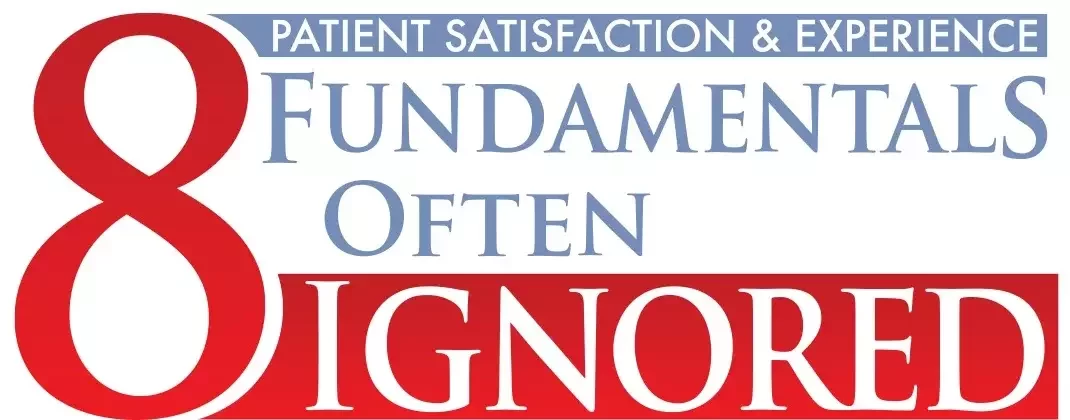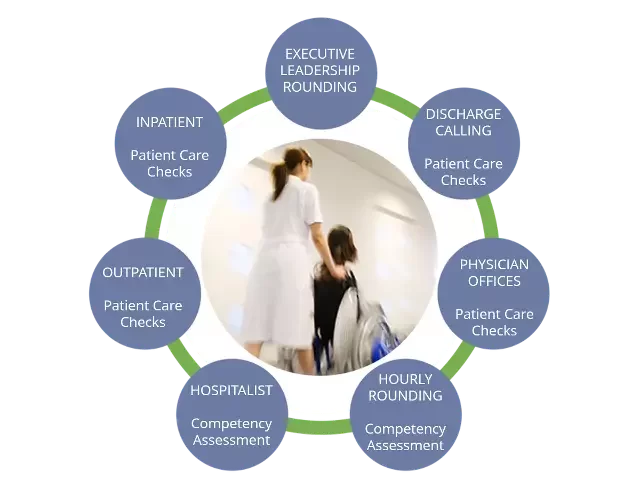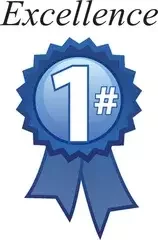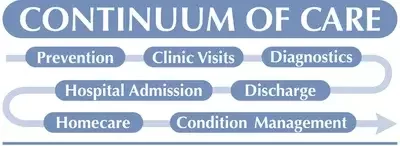
Understanding a few fundamentals of patient experience and patient satisfaction is an important component of implementing a successful and sustainable approach.
Patient Satisfaction & Experience

1. There is No Silver Bullet
2. If It's Not Real Time, Don't Do It
- Make the effort about identifying and correcting issues in real time.
- It helps you to know historically that patients are having issues with understanding medication. It improves a patient's satisfaction and experience if you identify and correct the medication issue while they are in the continuum of care. This type of proactive approach can play out in reducing readmissions.

If the banking industry processed data at the speed of healthcare, an ATM transaction would take a day.
3. It's Not Just a Nursing Responsibility
- Nursing feels that not everything is their accountability.
- You access a resource that ensures daily “customer service” interaction with patients.
- Managers who are not involved in direct care (accountants, HR etc) get consistent exposure to the reality of front line customer service and end up much more effective in their assigned role with this knowledge.
- It truly feels like a team effort.

4. Service Recovery
- On finding an issue, the response must be “I will get that taken care of now.”
- It cannot be “It's not my job.”
- Don’t overlook the power of "Sorry" followed by immediate correction. Most people will respond positively if you immediately acknowledge a mistake and take action.
It’s not that you won’t have service failures, you will. The question is, do you find them and respond immediately?
5. HCAHPS Is Just the Scoreboard
- Yes, the HCAHPS score is important;
- Yes, there are financial implications;
- Yes, there are reputation implications in the scores.

Always keep in mind it is just a scoreboard. If you take a quick glance and you are ahead, be happy but keep focused on playing the game well and improving. If you take a quick glance and you are behind, it's simply a reminder you need to play the whole game more consistently and better.
If you play tennis by just watching the scoreboard, you will know the score and certainly lose the game. Focus on playing the game well.
6. Excellence in All Operations
Expanding on #1: There No Silver Bullet...
- Is the billing understandable?
- Are the bathrooms spotless and check cleaned?
- Are the ceiling tiles free of stains? (How much time do patients spend looking at the ceiling?)
- Is the education material user-friendly?
- Are outpatient wait times tracked and managed daily?
- Is patient feedback gathered daily and reviewed?
- Is the food great ?
- Is navigating the building intuitive?
- Etc., etc.

7. Inside the Continuum Of Care

There seems to be a continuing desire inside healthcare to collect historical data on patient satisfaction. While there is some limited benefit from this information (outside of required HCAHPS scores) the vast majority of effort needs to be directed inside the continuum of care. If you cannot correct an issue at the time of discovery, it is too late. Do not make the contact about “How did we do?” Make the contact about “How are you doing?” Some key elements of this are:
- Meet with every inpatient every day (use all managers not just nursing).
- Collect feedback from outpatients as they leave. Review and correct any issues uncovered before they leave.
- Make outpatient discharge calls (live calls, not auto dialing) to outpatients the following day. Schedule at a time when you are most likely to make contact.
- Make inpatient post discharge calls (live calls, not auto dialing) on day 2 or 3 after discharge.
- Ensure that the senior management team is connected with the front line department staff (executive rounding) on a scheduled basis to ensure that they have all of the resources and support needed to deliver high-quality care.
8. Keep Learning
Real time response to service failures will improve your patient experience and satisfaction results. Analysis and correction of systematic failures surfacing from this feedback will drive further improvements. Importantly, keep learning, responding, and watching changes in a real time environment.

“It’s what you learn after you think you know it all that really matters.”
- John Wooden
